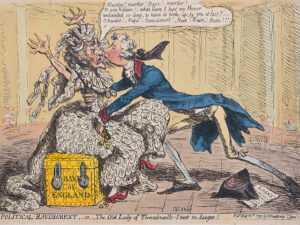Our generation has not previously experienced inflation. Most of us are not hugely concerned whilst relying on our parents for satisfying our needs, and thinking of future stages of studies. The latter of Gen Z have started working, and for millennials inflation has hit for the first time during their lifespan. For Gen Z-ers growing up in an era of an average 2% inflation, the reality is that we do not know what it is really like. The past resilience to spend is missing, along with the ability to budget long term.
Boiled down to its essence, inflation is a process of rising prices – or, to be more precise, the devaluation of money. If inflation is at 5% (5.1% is the current level of inflation in the United Kingdom) prices are 5% higher than a year ago – so, on average, the same thing that used to cost £100 is now priced at about £105.
This may not seem like a big issue, but amassed over time, inflation makes a huge difference. For example, in 1837, when slavery was being abolished in the UK, the Slave Compensation Act was signed into law and £20 million was spent on compensation (sic!) for slave owners across several British colonies.




